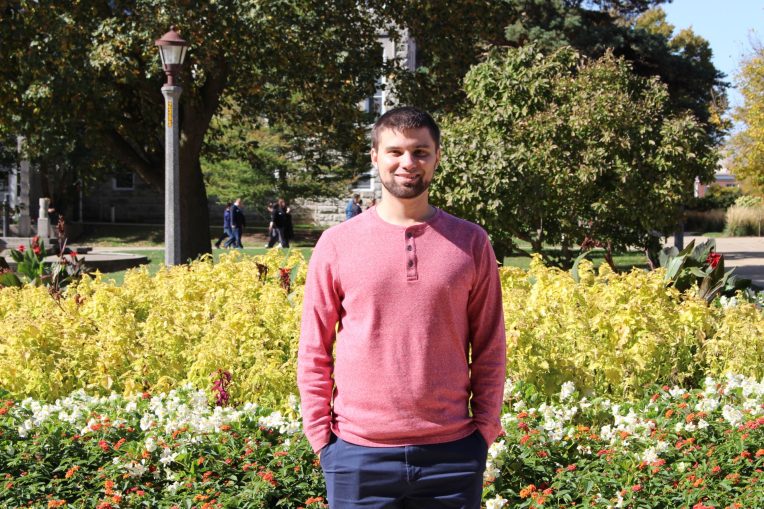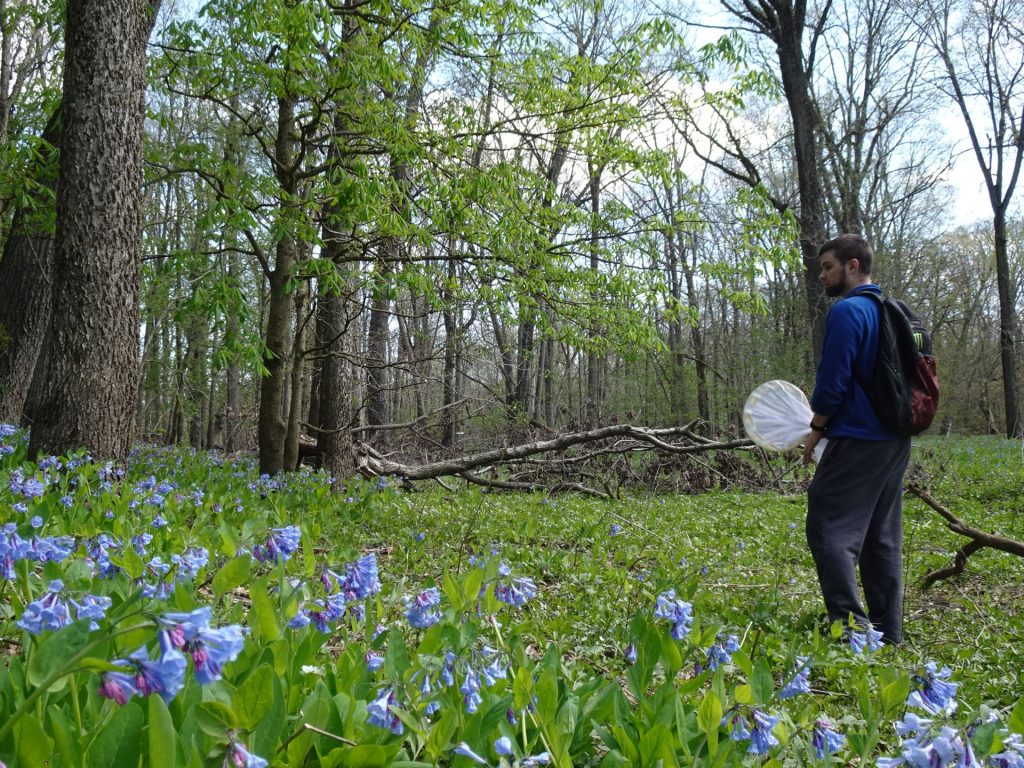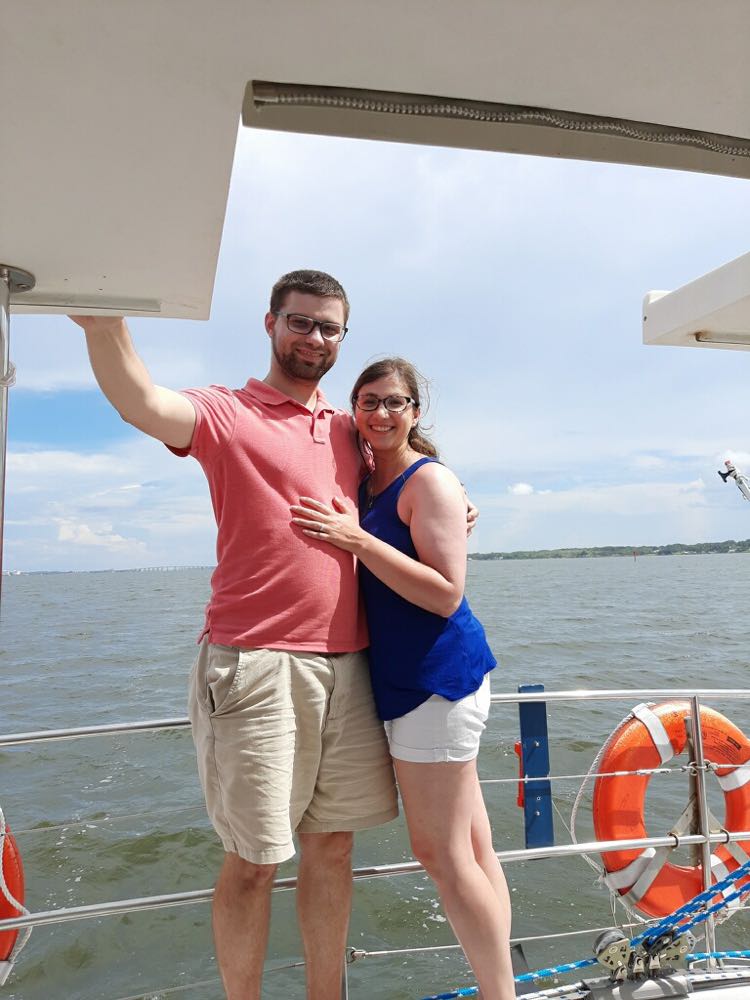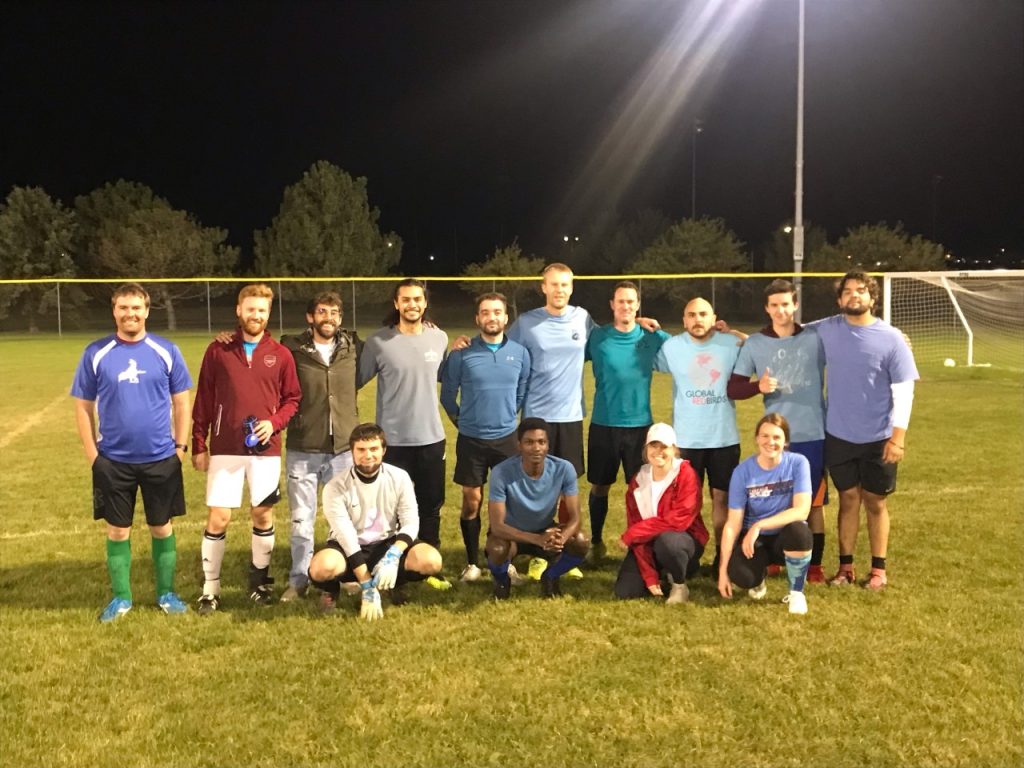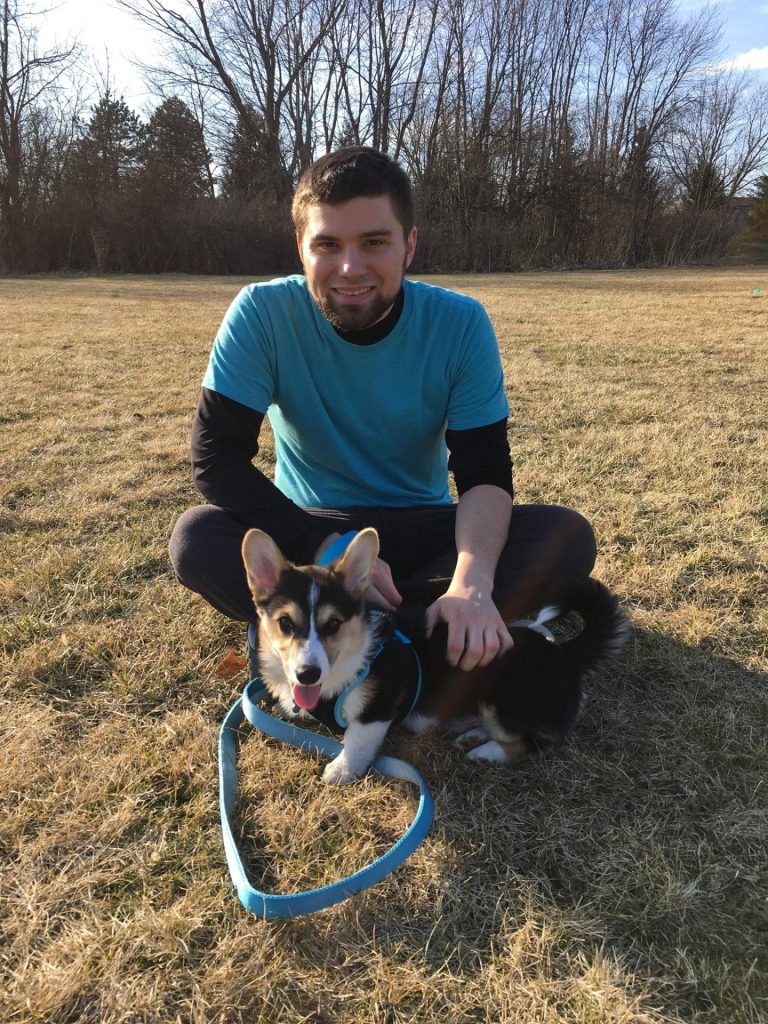The Graduate School has selected Logan Sauers as its October GradBird Scholar recipient! GradBird Scholar is an initiative to recognize graduate students for their scholarly endeavors at Illinois State University.
Logan completed his undergraduate degree at Western Illinois University in Zoology. During his time at Western, Logan fell in love with research while working as part of Dr. Pengqian Wang’s laser physics lab and as a part of Dr. Jim Lamer’s river ecology lab. After this, he attended Illinois State University for his master’s degree, working with Dr. Ben Sadd, on the evolution of host-associated microbial communities and Dr. Steven Juliano, on population dynamics in mosquito larvae. After deciding to stay at Illinois State to pursue his Ph.D., he continued to work with Dr. Sadd with the goal of advancing our understanding of the bumblebee bee gut microbiota, and the benefits hosts receive from these microbial communities.
While Logan loves his research and work, he has strongly emphasized maintaining a healthy work-life balance. Logan spends plenty of time with his fiancé Nicole and their energetic three-year-old corgi Finn. Logan also is captain of ISU’s Biology soccer team during the summer and fall. Additionally, he often attends or hosts board game nights with his friends and colleagues and spends his nights playing video games to socialize with friends who are too distant to see regularly in person. Learn more about Logan’s research and what he is working on within the field of Biological Sciences.
What is your favorite part of the Biological Sciences program here at Illinois State?
Illinois State University’s graduate program in Biological Sciences provides the benefits of a small department while still having faculty that are internationally renowned researchers. This means that I am often exposed to a broad range of high-quality Biology research, as opposed to other Universities, where the view is often more specific and narrower. Additionally, the School of Biological Sciences, student associations, and the graduate school does their best to support students in attending international conferences and providing small grant funding opportunities for students. These are both crucial for graduate student success. For example, this summer, I presented my research at an international conference in Lausanne, Switzerland.
Do you work with a specific faculty/staff member to help with your research?
I work specifically with Dr. Sadd, and my experience with him has been great! He has consistently challenged me to improve several aspects of my science, such as broadening my knowledge on many subjects, teaching myself new techniques in the field, and constantly working to improve my writing.
Working with Dr. Saad has helped me develop the crucial skills I need to become an internationally renowned scientist myself. Additionally, Dr. Sadd has been helping me to become a successful mentor myself, having me work with undergraduate students in the lab to teach them how to be successful scientists.
Can you explain your research & its importance of it within your field?
The work I do in Dr. Sadd’s lab is crucial to understanding how hosts interact with the microscopic communities they harbor. These microbial communities exist in many organisms, including mammals, such as humans and cows, to invertebrates, such as bees and coral. These communities benefit the hosts, and we need to understand what bacteria are there, what they are doing, and how they interact with each other and the host. For example, we can think of this community as being analogous to building a home. To build a good home, we require people specializing in several aspects, such as laying the concrete, plumbing, or handling the electricity.
Additionally, we need someone to make sure each of these individuals are working well together; if we paint the wall before we implement the electricity, then we have issues. If any of these parts are missing, then the home is not completely functional. So, we ask questions about who is present. Do we have more plumbers or more electricians? What determines who is there and when? Finally, how do these species work together to influence the outcome? Do the plumber and the concrete guy get along, or do they fight and disrupt the operation?
Why do you enjoy researching this topic, and what more do you hope to learn about it?
I enjoy this topic because of how widespread these microbial communities are and how they significantly influence our health. Changes in these communities cause various diseases, including hospital infections, coral bleaching, and even disruption of crop growth in agricultural fields.
What do you hope further research about this topic will do?
I hope that by better understanding the factors that influence who is present and how they interact in these microbial communities, we can better prevent harmful changes to these communities and better harness them for our benefit. This is in addition to gaining more fundamental knowledge about ecological and evolutionary interactions in these systems, which helps us understand these processes.
Would you like to highlight anything else about your thesis project?
I would just like to highlight that, in general, I think scientific study is another form of creative expression. We use creative ideas to address questions that may not otherwise be answered. I think research is a great avenue for students to stay intellectually challenged and creatively engaged during their studies at any level of degree or career.
